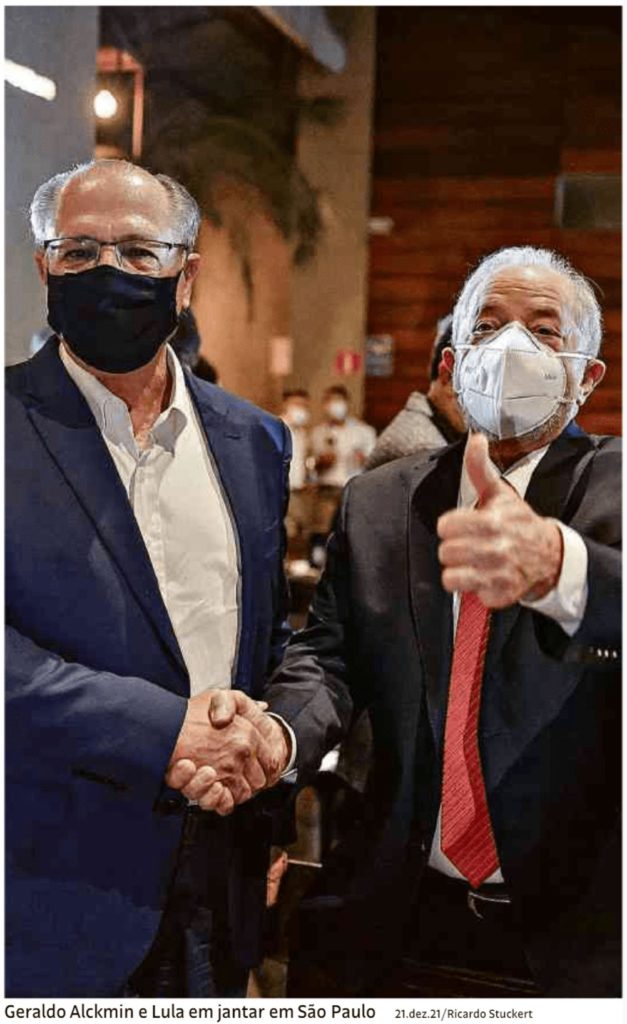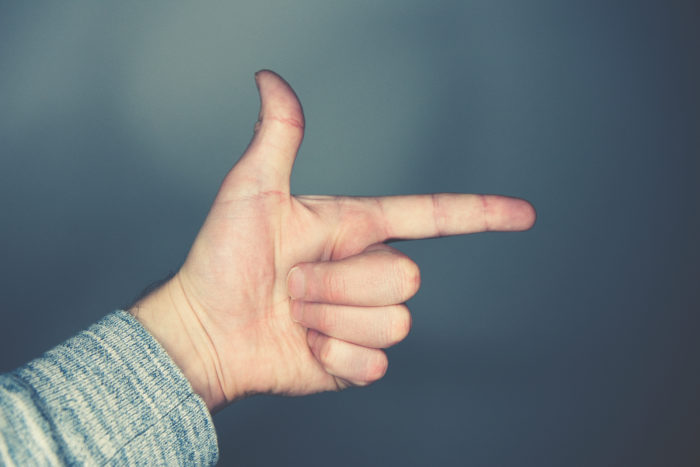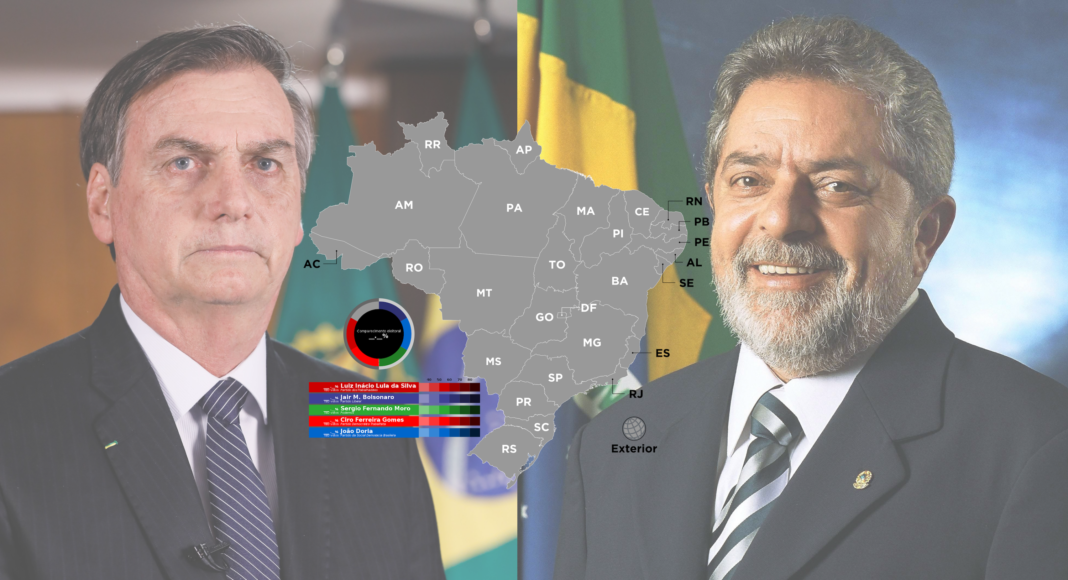The chess board is set for the upcoming Brazilian presidential election, in October and November later this year. There are currently two strong contenders. Far ahead in the opinion polls is former president Luiz Inácio Lula da Silva, followed some way behind by the current president, Jair Bolsonaro. Several recent polls show that Lula is preferred by some 40 to 46 per cent of voters, while Bolsonaro is supported by about 19 to 23 per cent.
Some polls even suggest that Lula could win an outright majority in the first round 1)Under the Brazilian electoral system for president, there are usually many candidates in the first round. Unless one candidate obtains more than 50 per cent of the votes, a second round is held, a run-off between the two who led the first round results., and thus avoid the need for a run-off. They indicate that Bolsonaro and the remaining six to eight likely first round candidates are currently polling about 38 to 40 per cent of the vote. Polling is also pointing to increasing polarisation between the extreme right (represented by Bolsonaro), and the centre-to-left-of-center (Lula), leaving little room for the so-called ‘3a. via’ (third way), supposedly represented by all the other candidates.
Bolsonaro’s term as president is coming to an end amidst a deluge of allegations of corruption, mismanagement, incompetence, embezzlement, crimes against humanity (based on his fierce anti-vax campaigning during the pandemic), and many others, including a series of anti-democratic attacks, in particular against the Supreme Court.
His support comes from the hard core of ‘bolsonarismo’ – those voters who identify themselves with the fascist, racist and misogynist positions expressed on a daily basis by this former army captain. Bolsonaro in fact retired from the military at the age of 30, after being accused of trying to blow up army facilities in protest against low wages. Although he was formally acquitted, it became clear subsequently that Bolsonaro was mastermind behind the plot. This group of ‘ultras’ will likely remain loyal and vote for him, no matter the outcome of the allegations. However, Bolsonaro will struggle to expand his support and votes beyond this core, which presents him with a major problem if he hopes to win the presidential election.
Lula, on the other hand, after being a victim of the Mensalão 2)Strictly speaking Lula’s case arose from the Petralão investigation of alleged bribery involving the Petrobras oil company. This was a sequel to the much larger Mensalão which led to the indictment of 37 people, including congressional deputies of the PT and other parties, one of the most vicious lawfare processes of modern times, and spending 580 days in prison, has seen nearly all the legal charges against him quashed by the Brazilian Supreme Court. Notoriously, Sergio Moro, the former judge who ruthlessly pursued the charges against Lula and then went on to become Bolsonaro’s Minister of Justice and Public Security, is now also a presidential candidate, running in the same far-right lane as Bolsonaro. So far polls show that he has attracted only six to eight per cent of the vote, and he is not considered to be a real contender.
With his political rights restored, Lula has systematically opened cautious conversations with key politicians across the entire anti-Bolsonaro spectrum, from the far-left to the center-right, aiming to build a strong and wide coalition capable of defeating Bolsonaro and his anti-democratic government. As a result, and before he has even been officially adopted as the PT’s presidential candidate, Lula has built a potential and powerful campaign ticket.

His likely vice-presidential running-mate is Geraldo Alckmin, the former governor of São Paulo state, who was an opponent in previous presidential elections. Their ticket has yet to be confirmed by their respective parties as Alckmin, a former key figure in the social-democratic PSDB, has left that party and will very likely join the Socialist Party, PSB, thus forming an alliance with PT for the presidential campaign.
The possibility of a Lula/Alckmin ticket has been attracting a lot of attention, and some favourable remarks even from politicians who are supposedly supporting Bolsonaro. In recent days, leader of the two of the largest centre-to-right parties, PMDB and PSD, have mooted supporting Lula in the first round.
After the announcement of this possible alliance, representatives of the economic establishment, known jokingly in Brazil as “faria-limers” (so called after Faria Lima, the São Paulo street where most Brazilian financial institutions are based), started making comments along the lines of ‘After all, Lula’s presidency wasn’t bad for business …’. In recent days, even Bloomberg and The Financial Times reported that the financial markets are now turning towards Lula.
In a similar development, some representatives of the Armed Forces, which had to date backed Bolsonaro in virtually all his disastrous initiatives and actions, now acknowledge that his government is hopeless. Recently the commander of the Air Force, commented ‘The Armed Forces will salute the next president, whoever he might be’, thus signaling their probable acceptance of a Lula presidency.
So, the sixty-four-thousand-dollar question now is: What will Bolsonaro do if he finds himself facing a clear defeat by Lula?
Here are some of the key issues to be considered:
- The Bolsonaros, Jair Bolsonaro and his sons 3)Three of Jair Bolsonaro’s sons are elected politicians. Flavio Bolsonaro is a senator for Rio de Janeiro state; Carlos Bolsonaro is a municipal councillor for the city of Rio de Janeiro, but is currently on leave, acting as an advisor to the president; Eduardo Bolsonaro is a member of congress, a deputado federal. The president calls himself “00”, and his sons “01”, “02” and “03”., as well as many members of his government, are being accused of a series of crimes. Some of these accusations are already under investigation by the Federal Police (over which the President has strong control and enjoys the support of many of its members; one of his sons is also a federal agent) and the judiciary system, including the Supreme Court (over which he has little or no control). If the president loses the election, he also loses the legal immunity that comes with the office, and can be charged with criminal offences and risks being imprisoned if he is convicted.
- During most of Bolsonaro’s term as president, he has deliberately passed legislation and executive orders to benefit the military and the police. In exchange, he is counting on their support perhaps even to carry out a coup d’état if he should lose the election. Nevertheless, the armed forces, if Lula wins, may prefer to avoid the international condemnation that a coup would inevitably call down, and instead try to negotiate influence, immunity from prosecution, and some power of veto over attempts to limit their role and actions.
- It is widely known that the Bolsonaros have close connections with Rio de Janeiro’s militias, a form of organised crime mafia mainly made up of former members of the police and the armed forces. The militias have spread throughout Rio de Janeiro city and also most of the surrounding state, and now control of wide swathes of territory. The Bolsonaros have unquestioning support from these criminal gangs, who are capable of any actions to protect their interests, including the assassination of politicians (such as that of Rio councillor Marielle Franco in 2018), judges, or anybody who they identify as obstacles to their goals.
- During his presidency, Bolsonaro has done everything he could to encourage civilian ownership of weapons. Ammunition sales used to be controlled by the Army under regulations that Bolsonaro’s government has gradually abolished. Consequently, the number of armed citizens, with plenty of ammunition, has increased to a staggering level. This is particularly true of the ruralistas, large rural landowners, many of whom now have small armed militias under their control. These would be capable of causing real trouble for a Lula government.
All these factors mean that the likely scenario following the elections is entirely unclear. All possibilities are open, from a straight Lula victory in the first round, followed by regular democratic transition backed by the majority in Congress, the military and the Supreme Court; to a very conflictive or even tragic outcome, including attempts on Lula’s life orchestrated by the Bolsonaros and their militias.
The next months, starting with the official announcement of the Lula/Alckmin ticket in March, will help clarify what might be the outcome of this year’s presidential elections in Brazil.

Main image: Ricardo Stuckert/Presidência da República & Isac Nóbrega/PR (Creative Commons)
References
| ↑1 | Under the Brazilian electoral system for president, there are usually many candidates in the first round. Unless one candidate obtains more than 50 per cent of the votes, a second round is held, a run-off between the two who led the first round results. |
|---|---|
| ↑2 | Strictly speaking Lula’s case arose from the Petralão investigation of alleged bribery involving the Petrobras oil company. This was a sequel to the much larger Mensalão which led to the indictment of 37 people, including congressional deputies of the PT and other parties |
| ↑3 | Three of Jair Bolsonaro’s sons are elected politicians. Flavio Bolsonaro is a senator for Rio de Janeiro state; Carlos Bolsonaro is a municipal councillor for the city of Rio de Janeiro, but is currently on leave, acting as an advisor to the president; Eduardo Bolsonaro is a member of congress, a deputado federal. The president calls himself “00”, and his sons “01”, “02” and “03”. |

